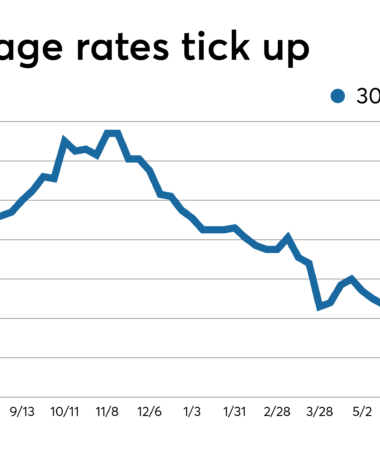The pursuit of an MBA in Finance is a significant step for many aspiring finance professionals, as it equips them with the necessary skills and knowledge to navigate the complex world of finance. One of the critical components of this academic journey is the finance project, which serves as a practical application of theoretical concepts learned throughout the program. Selecting an appropriate project topic is essential, as it not only reflects the student’s interests and career aspirations but also showcases their analytical and research capabilities.
The right topic can lead to a deeper understanding of financial principles and practices, while also providing a platform for innovative thinking and problem-solving. Finance project topics can range from corporate finance and investment analysis to risk management and financial technology. Each topic presents unique challenges and opportunities for exploration, allowing students to delve into real-world issues that affect businesses and economies.
As the finance landscape continues to evolve with advancements in technology and changes in regulatory frameworks, students are encouraged to choose topics that are not only relevant but also forward-thinking. This article will explore the importance of selecting the right topic, provide a list of compelling project ideas, and offer guidance on conducting research and presenting findings effectively.
Key Takeaways
- Choosing the right topic for your MBA finance project is crucial for success in your program and future career.
- The top 10 MBA finance project topics include financial risk management, investment analysis, and corporate finance strategies.
- Selecting the best topic for your MBA finance project involves considering your interests, career goals, and the current trends in the finance industry.
- When conducting research for your MBA finance project, utilize a variety of sources such as academic journals, industry reports, and expert interviews.
- Writing and presenting your MBA finance project requires clear communication, data analysis, and a thorough understanding of your chosen topic.
Importance of Choosing the Right Topic for Your MBA Finance Project
Choosing the right topic for an MBA finance project is crucial for several reasons. Firstly, a well-chosen topic can significantly enhance a student’s engagement with their research. When students are passionate about their subject matter, they are more likely to invest time and effort into their project, leading to a more thorough and insightful analysis.
This engagement can translate into higher quality work, which is often reflected in grades and evaluations. Moreover, a topic that resonates with a student’s career goals can serve as a valuable stepping stone into their desired field, providing them with relevant experience and knowledge that can be highlighted in future job applications. Secondly, the right topic can also influence the scope and depth of research.
A well-defined topic allows students to focus their efforts on specific questions or problems within the finance domain, making it easier to gather relevant data and draw meaningful conclusions. Conversely, a vague or overly broad topic can lead to confusion and frustration, as students may struggle to find direction in their research. By selecting a focused topic that aligns with current trends or challenges in the finance industry, students can contribute valuable insights that may be beneficial not only to their academic pursuits but also to practitioners in the field.
Top 10 MBA Finance Project Topics

1. **Impact of Financial Technology on Traditional Banking**: This topic explores how innovations such as blockchain, mobile banking, and peer-to-peer lending are reshaping the banking landscape. Students can analyze case studies of banks that have successfully integrated technology into their operations and assess the implications for customer service and operational efficiency.
2. **Risk Management Strategies in Investment Portfolios**: This project could involve evaluating various risk management techniques used by investment firms to mitigate potential losses. Students might analyze historical data to assess the effectiveness of these strategies during market downturns.
3. **Behavioral Finance: Understanding Investor Psychology**: This topic delves into how psychological factors influence investment decisions. Students can conduct surveys or experiments to explore common biases among investors and their impact on market trends.
4. **Corporate Social Responsibility (CSR) and Financial Performance**: This project examines the relationship between a company’s CSR initiatives and its financial outcomes. Students could analyze financial data from companies known for their CSR efforts to determine if there is a correlation between social responsibility and profitability.
5. **The Role of Microfinance in Economic Development**: This topic focuses on how microfinance institutions contribute to economic growth in developing countries. Students can evaluate case studies of successful microfinance programs and their impact on local communities.
6. **Cryptocurrency: Investment Opportunities and Risks**: With the rise of digital currencies, this project could explore the potential benefits and risks associated with investing in cryptocurrencies. Students might analyze market trends and regulatory challenges facing this emerging asset class.
7. **Mergers and Acquisitions: Financial Implications and Success Factors**: This topic allows students to investigate the financial aspects of mergers and acquisitions, including valuation methods and post-merger performance analysis. 8.
**Sustainable Investing: Trends and Challenges**: This project could explore the growing trend of sustainable investing, examining how environmental, social, and governance (ESG) factors influence investment decisions and portfolio performance. 9. **The Effect of Interest Rates on Stock Market Performance**: Students can analyze historical data to assess how changes in interest rates impact stock prices and investor behavior, providing insights into market dynamics.
10. **Financial Literacy Programs: Impact on Personal Finance Management**: This topic examines the effectiveness of financial literacy initiatives in improving individuals’ financial decision-making skills. Students could conduct surveys or interviews to gather data on participants’ financial behaviors before and after completing such programs.
How to Select the Best Topic for Your MBA Finance Project
| Factors to Consider | Importance |
|---|---|
| Interest and Passion | High |
| Relevance to Career Goals | High |
| Availability of Data | Medium |
| Complexity and Depth | Medium |
| Feasibility | High |
Selecting the best topic for an MBA finance project involves a careful consideration of several factors. First, students should reflect on their personal interests and career aspirations within the finance sector. A topic that aligns with one’s passions not only makes the research process more enjoyable but also fosters a deeper commitment to producing high-quality work.
For instance, if a student is particularly interested in sustainable finance, they might choose a project that explores the impact of ESG factors on investment strategies. Additionally, students should consider the availability of resources and data related to their chosen topic. A well-researched project requires access to relevant literature, case studies, and empirical data.
Before finalizing a topic, it is advisable to conduct preliminary research to ensure that sufficient information is available for analysis. This step can help avoid potential roadblocks later in the project when students may find themselves struggling to gather necessary data or references. Another important aspect is the relevance of the topic within the current financial landscape.
Topics that address contemporary issues or emerging trends are likely to resonate more with both academic audiences and industry professionals. For example, exploring the implications of cryptocurrency regulation or analyzing the effects of recent economic policies on investment strategies can provide valuable insights that contribute to ongoing discussions in the field.
Tips for Conducting Research for Your MBA Finance Project
Conducting thorough research is fundamental to producing a successful MBA finance project. One effective approach is to start with a comprehensive literature review that encompasses both academic journals and industry reports. Academic journals often provide peer-reviewed articles that present rigorous analyses of various finance topics, while industry reports can offer practical insights into current market trends and practices.
Utilizing databases such as JSTOR, Google Scholar, or specific finance-related databases like SSRN can help students access high-quality sources. In addition to traditional literature sources, students should consider leveraging primary research methods such as surveys or interviews. Gathering firsthand data can provide unique perspectives that enrich the analysis and findings of the project.
For instance, if a student is investigating investor behavior in response to market volatility, conducting surveys among different investor demographics can yield valuable insights that complement existing literature. Moreover, maintaining organized notes and documentation throughout the research process is crucial for effective project management. Utilizing tools such as reference management software (e.g., Zotero or EndNote) can help students keep track of sources and citations efficiently.
This organization not only streamlines the writing process but also ensures that all references are accurately cited in accordance with academic standards.
Writing and Presenting Your MBA Finance Project

The writing phase of an MBA finance project is where all research efforts come together to form a coherent narrative. A well-structured project typically includes an introduction that outlines the research question or hypothesis, followed by a literature review that contextualizes the study within existing knowledge. The methodology section should detail how data was collected and analyzed, while results should present findings clearly and concisely using tables or graphs where appropriate.
Clarity is paramount when writing about complex financial concepts; therefore, students should strive for precision in language while avoiding jargon that may confuse readers unfamiliar with specific terms. Additionally, incorporating real-world examples or case studies can enhance understanding by illustrating theoretical concepts in practice. Once the written report is complete, preparing for presentation is equally important.
Students should practice delivering their findings confidently while engaging their audience through visual aids such as PowerPoint slides or infographics. Effective presentations often include a summary of key points followed by an opportunity for questions from peers or faculty members, allowing for interactive discussion that can further enrich understanding of the topic.
Potential Career Opportunities with a Finance MBA
An MBA in Finance opens up a myriad of career opportunities across various sectors, reflecting the versatility of financial expertise in today’s job market. Graduates often find roles in investment banking, where they may work on mergers and acquisitions or capital raising for corporations. The analytical skills honed during their studies enable them to assess financial statements critically and make informed recommendations based on market conditions.
Another prominent career path is in corporate finance, where professionals manage an organization’s financial activities, including budgeting, forecasting, and strategic planning. These roles require strong analytical abilities as well as effective communication skills to collaborate with other departments within an organization. Additionally, positions in asset management allow finance graduates to manage investment portfolios on behalf of clients or institutions, requiring a deep understanding of market trends and risk assessment techniques.
Furthermore, roles in financial consulting provide opportunities to advise businesses on financial strategies aimed at improving profitability or navigating complex regulatory environments. Emerging fields such as fintech also present exciting career prospects for MBA graduates specializing in finance. As technology continues to disrupt traditional financial services, professionals who understand both finance and technology are increasingly sought after by startups and established firms alike.
Final Thoughts on MBA Finance Project Topics
The selection of an appropriate topic for an MBA finance project is a pivotal step in shaping one’s academic experience and future career trajectory within the finance sector. By choosing a relevant and engaging subject matter, students not only enhance their learning but also position themselves favorably for future employment opportunities. The process of conducting thorough research, writing effectively, and presenting findings plays a crucial role in developing essential skills that are highly valued in today’s competitive job market.
As students embark on this journey, they should remain open-minded about potential topics while considering their personal interests and career goals. The finance landscape is dynamic; thus, staying informed about current trends will enable students to contribute meaningfully to discussions within their chosen field. Ultimately, an MBA finance project serves as both an academic exercise and a stepping stone toward a successful career in finance.
FAQs
What are some popular MBA finance project topics?
Some popular MBA finance project topics include financial performance analysis, working capital management, investment analysis, risk management, and mergers and acquisitions.
How do I choose a suitable MBA finance project topic?
When choosing a suitable MBA finance project topic, consider your interests, the relevance of the topic to the finance industry, and the availability of data and resources for research.
What are the benefits of choosing a good MBA finance project topic?
Choosing a good MBA finance project topic can help you develop a deeper understanding of financial concepts, enhance your research and analytical skills, and make a valuable contribution to the field of finance.
How can I ensure the success of my MBA finance project?
To ensure the success of your MBA finance project, it is important to conduct thorough research, analyze data effectively, and present your findings in a clear and concise manner. Seeking guidance from faculty members or industry professionals can also be beneficial.
What are some key considerations when conducting research for an MBA finance project?
When conducting research for an MBA finance project, it is important to consider the reliability of sources, the relevance of the data to your topic, and the ethical implications of using certain information. Additionally, it is important to use appropriate research methodologies and analytical tools.
How can I make my MBA finance project stand out?
To make your MBA finance project stand out, consider choosing a unique and innovative topic, conducting in-depth research, and providing practical recommendations or solutions based on your findings. Additionally, presenting your project in a professional and engaging manner can help it stand out.








